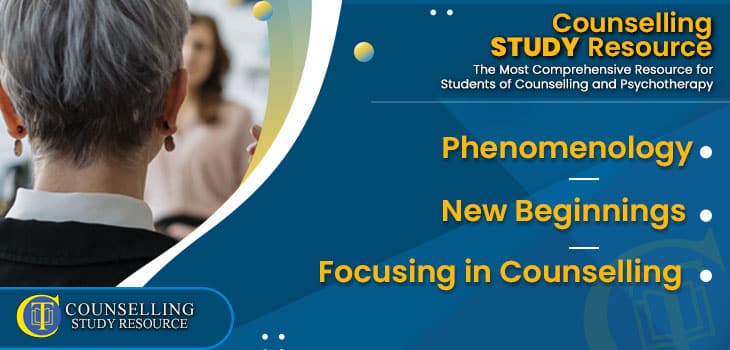See Counselling Skills Used in Real Sessions by Qualified Therapist
Real Sessions – Real Presentations – Real Skills
Gain the competence and confidence to use counselling techniques effectively!

In Episode 233 of the Counselling Tutor Podcast – the last of the season – your hosts Rory Lees-Oakes and Ken Kelly take us through today’s three topics:
Phenomenology in Person-Centred Counselling
Listen as Rory and Ken discuss the tongue twister of the day – phenomenology.
The key points of this discussion include:

Real Sessions – Real Presentations – Real Skills
Gain the competence and confidence to use counselling techniques effectively!
Plenty of focus is given to endings within our lives, but focusing on new beginnings is just as important.
In this section Rory and Ken discuss some of the main things you can consider when it comes to your new beginnings:

On-demand access to a rich lecture library covering theory, skills, and professional development for counselling students—Mapped to the UK awarding body criteria
“The Student Library has been BRILLIANT, I can’t recommend it enough!
It has been a lifeline in helping me prepare for practice and my first clients. If you’re considering it, go-for-it, it’s absolutely worth it!”
Kelly – Graduated and now in practice.
In this week’s ‘Practice Matters’, Rory speaks with good friend Sally-Anne Armitage about using the skill of focusing in your counselling practice.
The main points of this discussion include:
Phenomenology in Person-Centred Counselling

Get on-demand Certified CPD that is implementable in your practice
